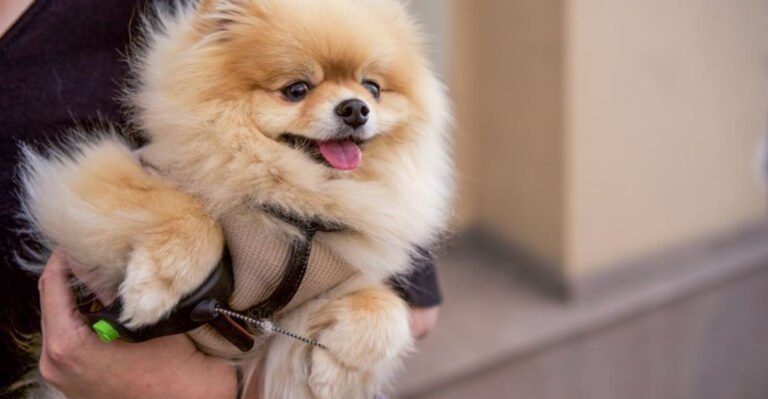15 Clues Your Cat Has Exceptional Emotional Intelligence, According To Experts
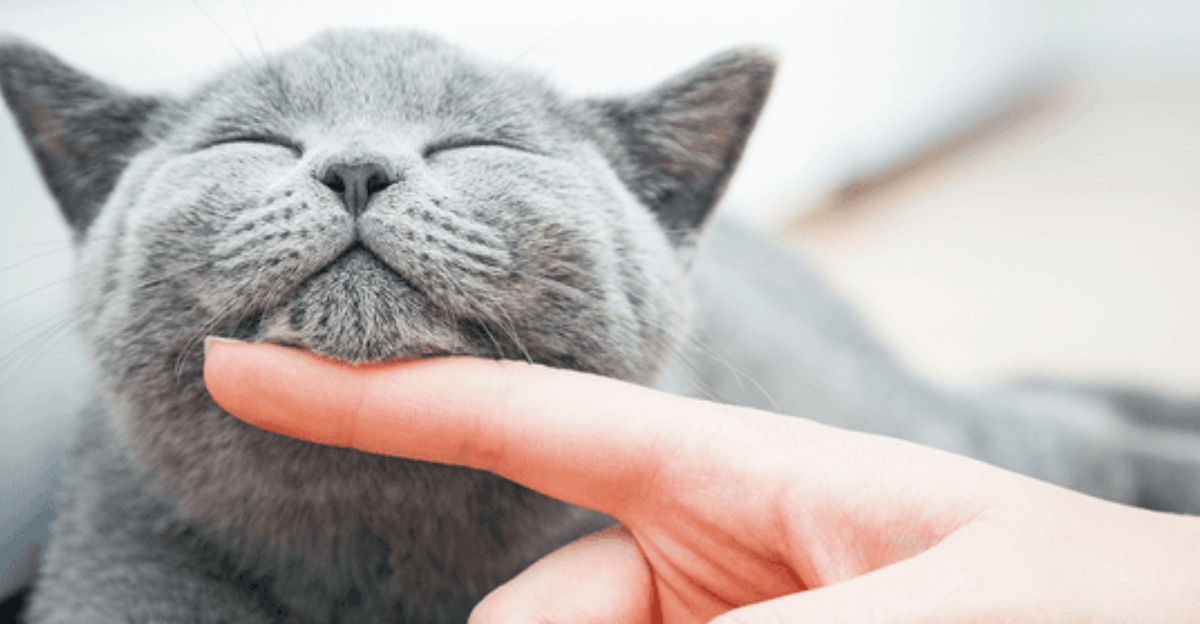
Ever wondered if your feline friend understands your feelings better than most humans do? Cats have long been misunderstood as aloof creatures, but research suggests they might be emotional geniuses in disguise.
These mysterious furballs actually pick up on our moods, respond to our needs, and form deep bonds with their favorite humans – all signs of remarkable emotional smarts.
1. They Make Eye Contact When You Speak
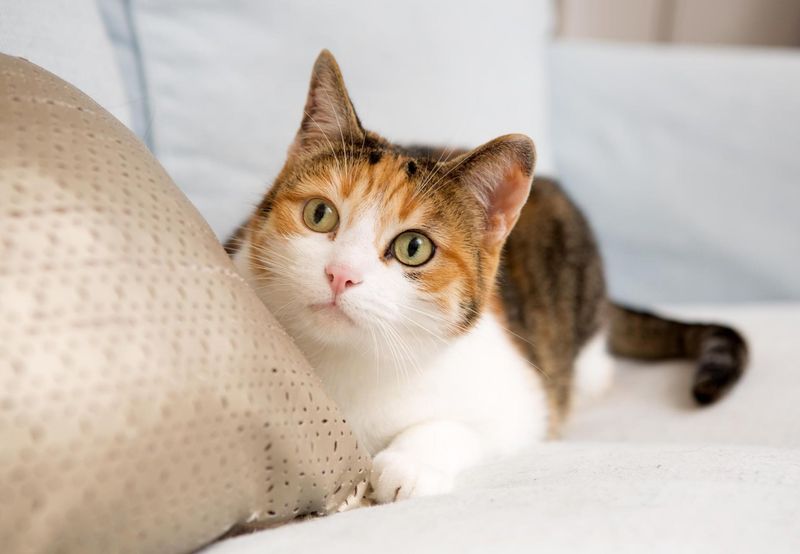
When your kitty locks eyes with you during conversation, they’re showing remarkable attunement to human communication. Unlike most animals that find direct eye contact threatening, emotionally intelligent cats use it to strengthen your bond.
Animal behaviorists note this skill develops primarily in cats with strong human connections. Your cat isn’t just staring—they’re actively engaging with you, processing your words and emotions through visual cues. This sophisticated social behavior mirrors what we see in highly emotionally intelligent humans.
2. Greeting You At The Door Every Day
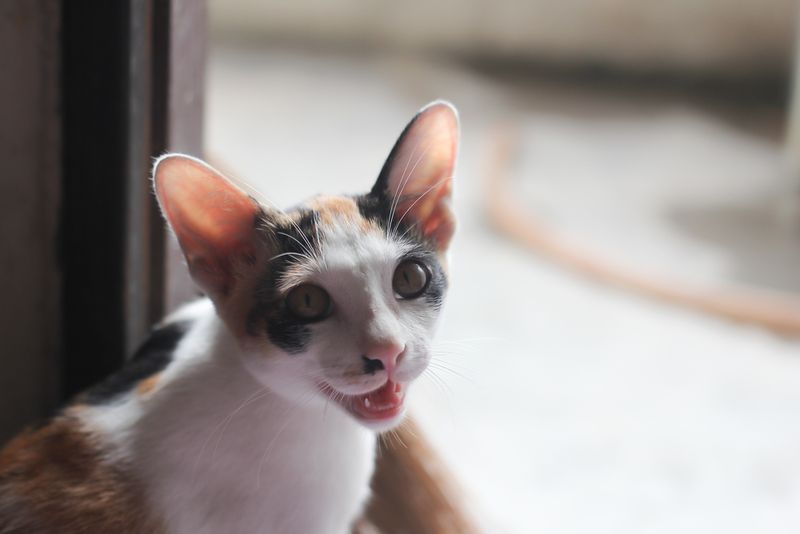
That excited trot to the door when you arrive home isn’t just about dinner time. Emotionally savvy cats recognize your routine and deliberately position themselves to welcome you back to shared territory.
Feline behavior specialists point out this ritual builds trust and reaffirms your special connection. Your cat remembers you specifically – your scent, your footsteps, even the sound of your car!
This daily greeting ceremony shows they’ve mentally mapped your schedule and prioritized your return as an important emotional event worth celebrating.
3. Bringing You “Gifts” When You’re Sad
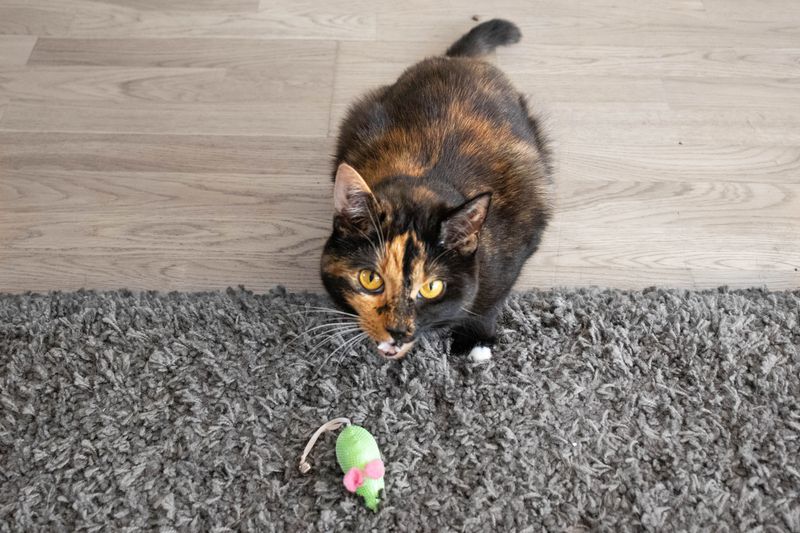
Found a toy mouse on your pillow after a rough day? Your emotionally brilliant cat might be trying to cheer you up. Cats who bring offerings during your emotional low points demonstrate remarkable empathy.
According to feline psychology experts, these gifts aren’t random – they’re often timed to your distress signals. Your cat picks up on subtle changes in your body language, voice tone, and even scent when you’re upset. Their gift-giving behavior represents a sophisticated attempt to improve your emotional state using the tools available to them.
4. Purring At Just The Right Moments
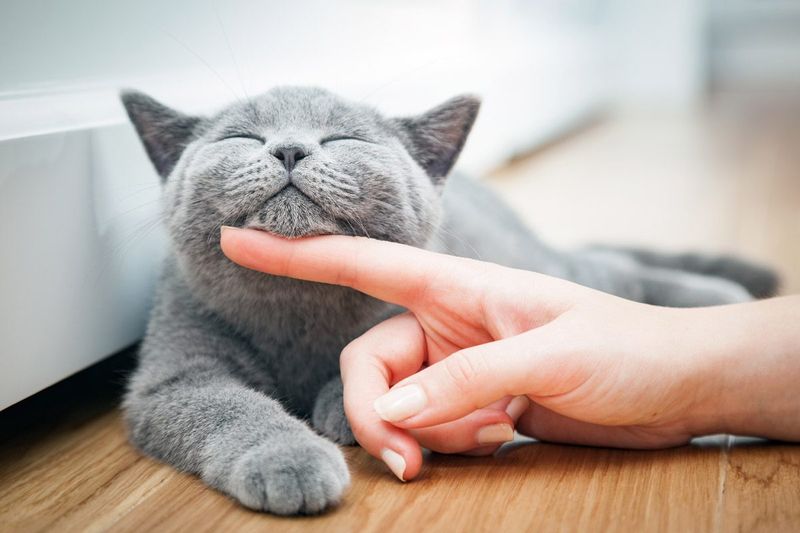
That perfectly timed rumble isn’t just random – emotionally intelligent cats activate their purr motors strategically. Beyond expressing contentment, purring serves as a healing mechanism for both cats and their humans.
Research shows purr vibrations occur at frequencies that promote tissue healing and stress reduction. Remarkably intuitive cats often purr when their humans are anxious, ill, or recovering.
Your cat essentially becomes a furry emotional support device, instinctively delivering therapeutic sound therapy when you need it most. This timing demonstrates their ability to sense your emotional and physical states.
5. Responding Differently To Family Members
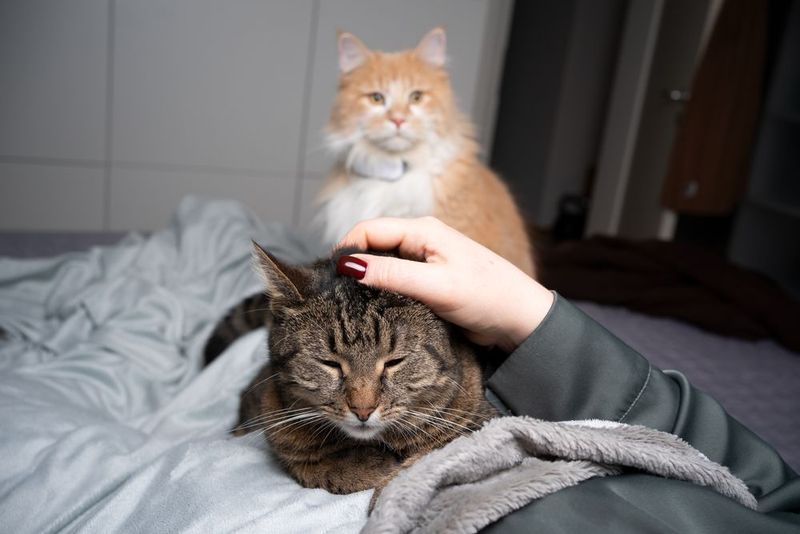
Notice how your cat acts like a completely different animal depending on who they’re interacting with? This chameleon-like adaptability reveals sophisticated emotional processing.
Feline behaviorists observe that emotionally intelligent cats tailor their interactions based on each person’s personality, energy level, and past behavior. They might be gentle with children, playful with active adults, and calm with elderly family members.
This personalized approach shows they’re not just reacting instinctively but actively analyzing and responding to the unique emotional profiles of different humans.
6. Comforting You During Illness
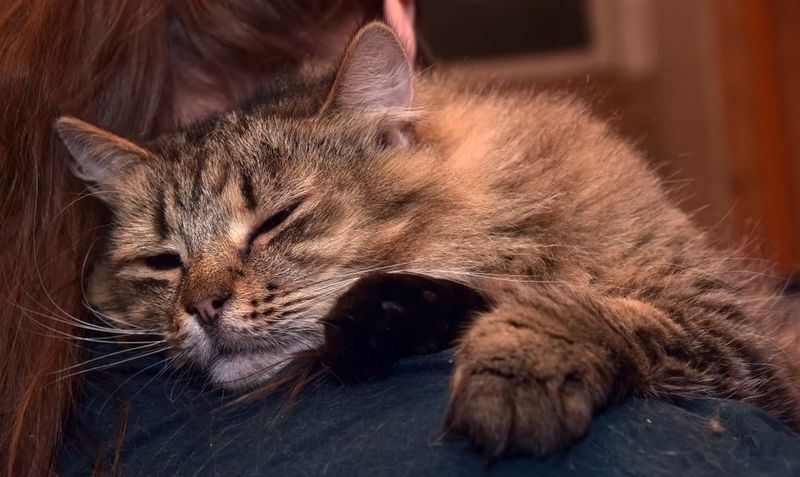
Feeling under the weather? Your emotionally gifted cat might suddenly become your shadow. Many cat owners report their normally independent felines transform into attentive nurses when illness strikes.
Veterinary experts suggest cats can detect subtle changes in body temperature, breathing patterns, and even certain chemical changes associated with sickness. Your cat’s sudden nursing behavior indicates they’ve noticed these changes and adjusted their own behavior in response.
This remarkable sensitivity to your physical state reflects advanced emotional processing that prioritizes your wellbeing.
7. Learning Your Daily Routine
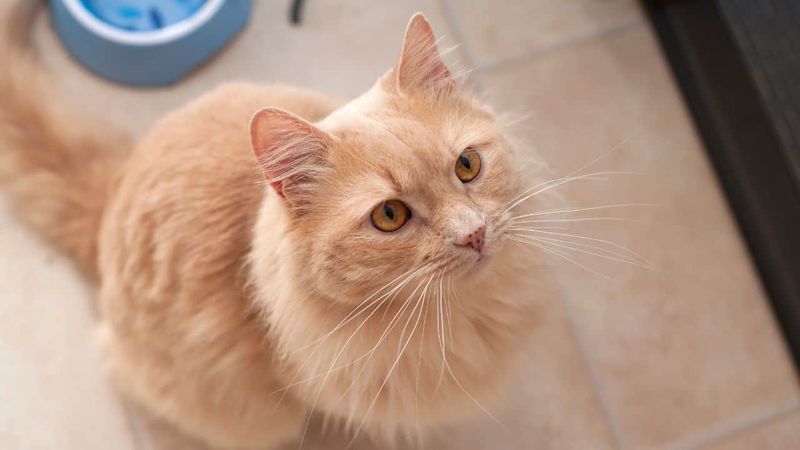
That uncanny ability to appear two minutes before your alarm clock rings showcases impressive emotional intelligence. Cats with exceptional emotional smarts build detailed mental maps of your schedule and habits.
Animal cognition researchers note this behavior requires sophisticated pattern recognition and memory. Your cat tracks not just time but sequences of events that matter to your shared life.
They anticipate your movements because they’ve studied you carefully, showing both intelligence and emotional investment in maintaining synchronicity with your life.
8. Reading Your Facial Expressions
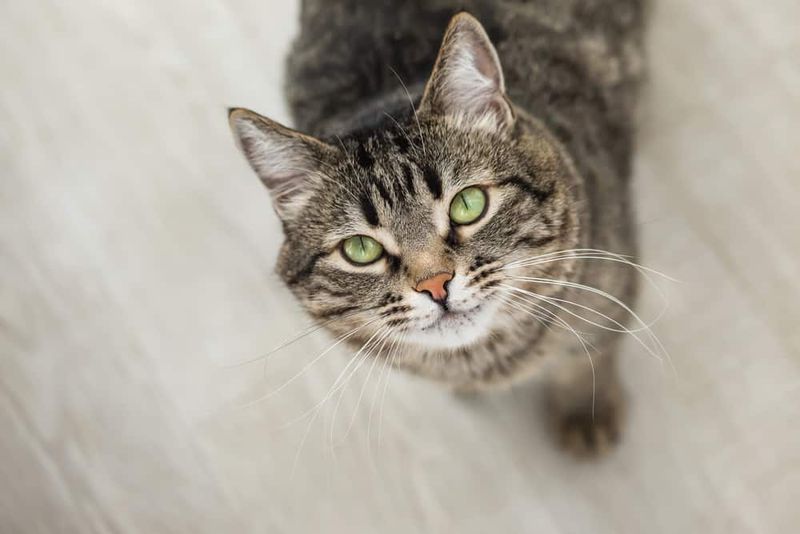
Those moments when your cat seems to respond directly to your smile or frown? You’re witnessing advanced emotional processing at work. Emotionally intelligent cats develop the ability to read human facial expressions with surprising accuracy.
Feline cognition studies reveal cats can distinguish between happy, angry, and neutral human faces. What’s more remarkable is they adjust their behavior accordingly – approaching when you smile, keeping distance when you frown. Your cat has essentially learned a foreign emotional language (human expressions) and translated it into meaningful information about how to interact with you.
9. Mediating Family Conflicts
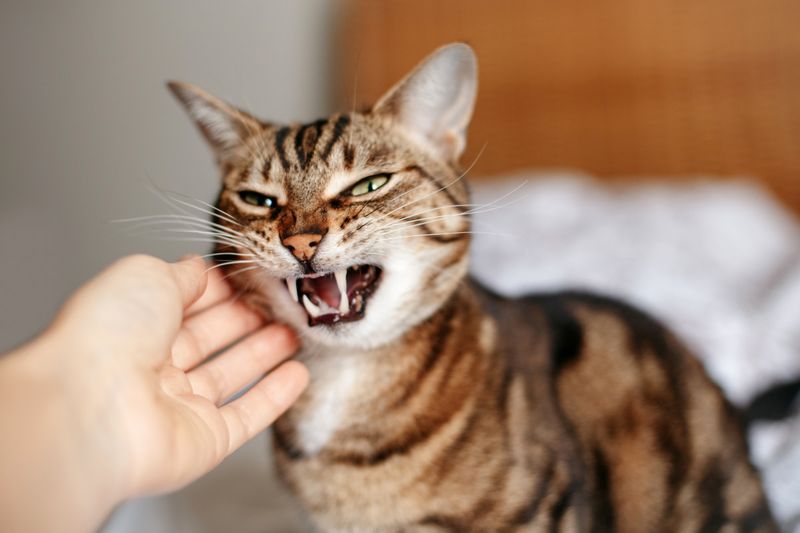
Ever noticed your cat suddenly appearing during family arguments? Emotionally advanced cats often insert themselves into human conflicts, sometimes even physically positioning themselves between arguing parties.
Animal behaviorists suggest this isn’t coincidence but deliberate intervention. Your cat senses the emotional tension and acts to diffuse it – sometimes through distraction (sudden zoomies), sometimes through calming presence. This sophisticated response shows they not only recognize emotional discord but feel motivated to restore harmony. Such peacekeeping efforts demonstrate remarkable emotional intelligence that extends beyond self-interest.
10. Respecting Your Personal Boundaries
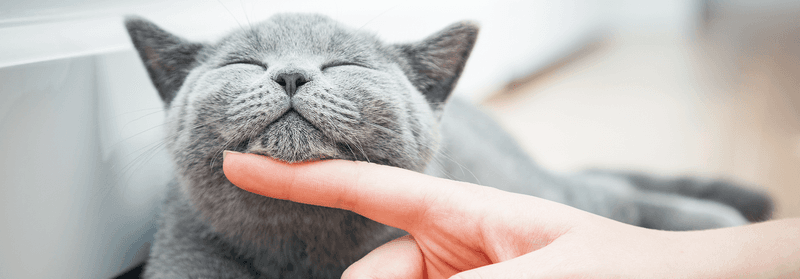
A truly emotionally intelligent cat knows when to approach for cuddles and when to give you space. This boundary awareness represents sophisticated social cognition rarely seen in animals.
Feline behavior specialists point out that cats naturally value personal space, but emotionally gifted cats extend this understanding to humans. They learn your specific comfort zones through careful observation. Your cat remembers which interactions you’ve welcomed or rejected previously. This personalized approach to physical boundaries shows they’ve developed a mental model of your preferences, demonstrating empathy and emotional intelligence.
11. Sending Slow Blinks Your Way
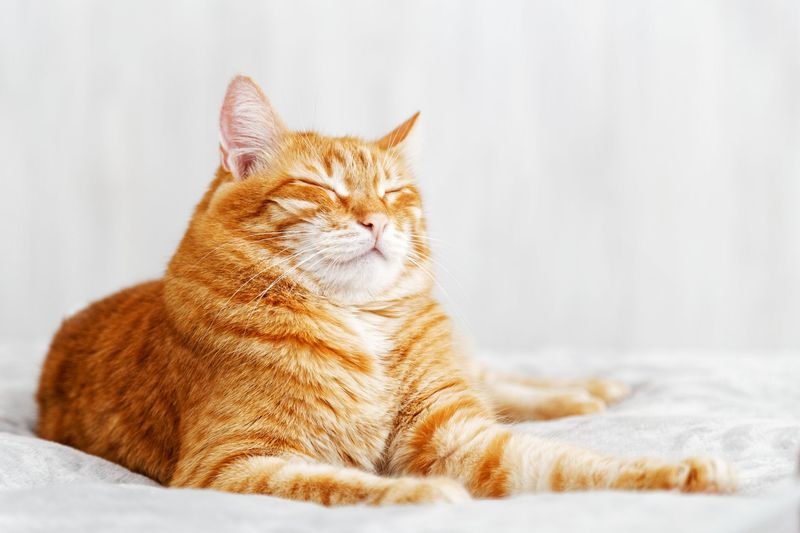
Those dreamy half-closed eyes directed your way aren’t signs of boredom – they’re cat kisses! The slow blink represents one of the clearest expressions of feline emotional intelligence.
Feline researchers confirm this gesture communicates trust, affection, and security. By deliberately making themselves vulnerable (closing eyes briefly), your cat demonstrates deep emotional connection. What’s particularly remarkable is that emotionally intelligent cats often initiate slow blinks when you need reassurance, not just when they feel content. This timing shows they’re attuned to your emotional needs.
12. Adapting Their Communication Style To You
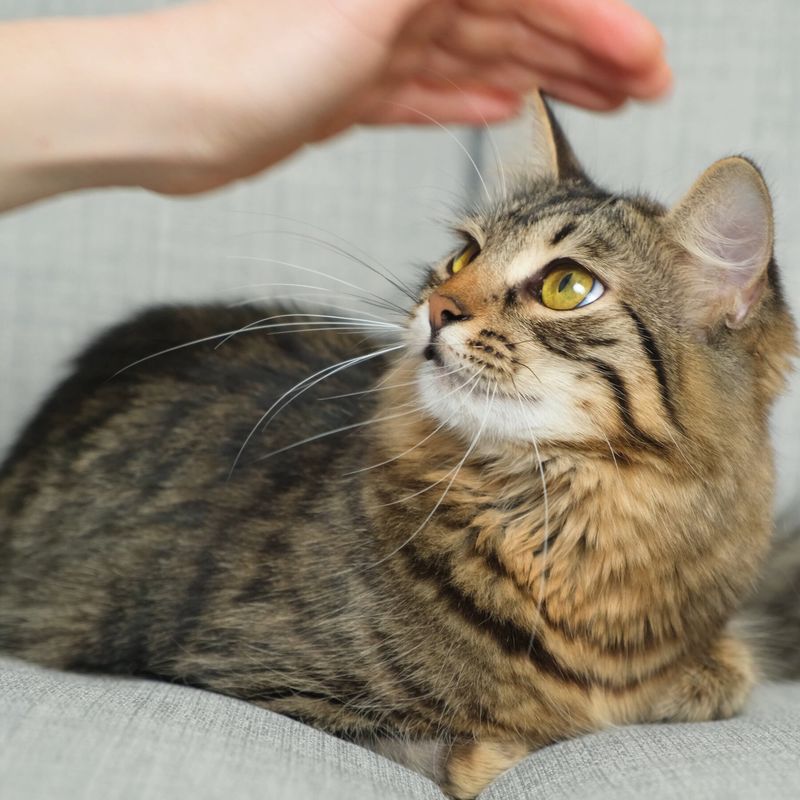
Notice how your cat seems to have developed a unique language just for you? Emotionally brilliant cats customize their communication methods based on what gets through to their humans.
Feline communication researchers observe that cats rarely meow to each other but develop elaborate vocal repertoires specifically for humans. Your cat has essentially learned which sounds, movements, and behaviors successfully convey their needs to you personally. This adaptive communication shows remarkable emotional intelligence – they’ve studied which signals you respond to and refined their approach accordingly.
13. Sensing Your Emotional Changes Before Others
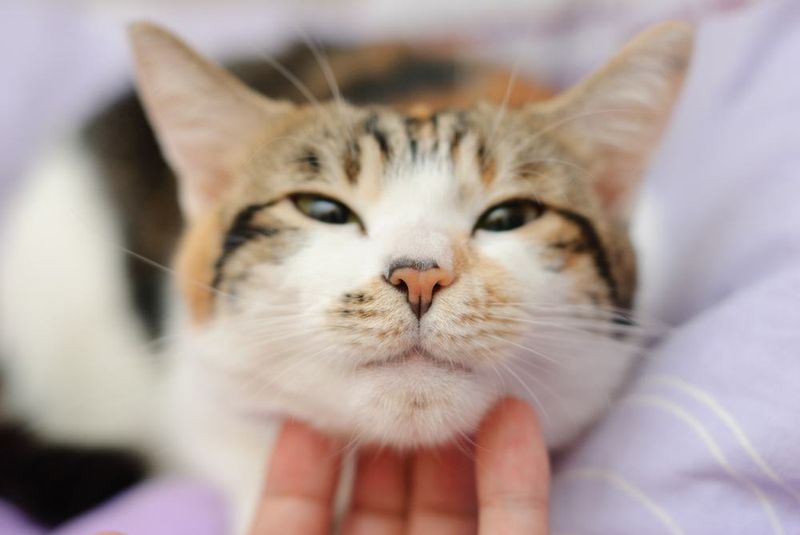
When your cat suddenly becomes extra attentive before you even realize you’re feeling down, you’re witnessing emotional intelligence that sometimes surpasses humans. Cats with exceptional emotional radar detect subtle shifts in your emotional state before they become obvious.
Animal behavior experts note cats can detect minute changes in your body chemistry, posture, and breathing patterns associated with emotional shifts. Your cat essentially reads physical manifestations of emotions before you’ve fully processed them consciously. This early detection system allows them to respond supportively during emotional transitions, showing remarkable sensitivity to your internal experience.
14. Remembering Who Treats Them Well
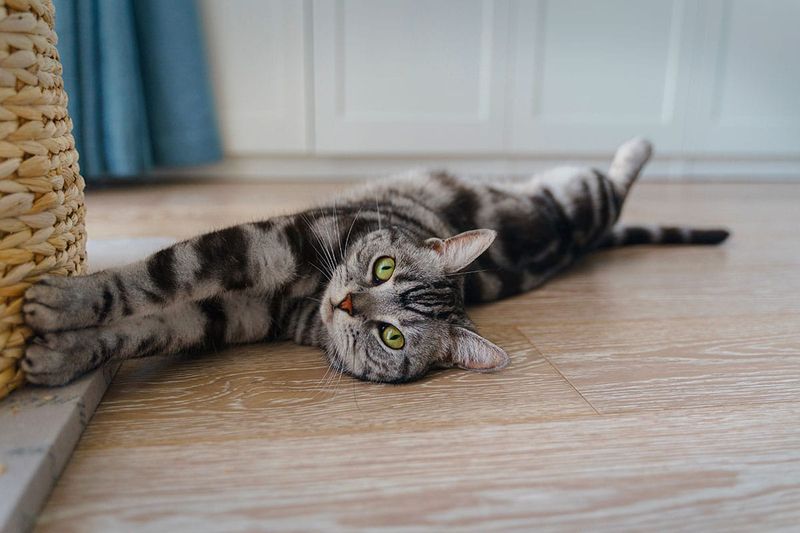
That uncanny ability to distinguish between cat people and non-cat people reveals sophisticated emotional memory. Emotionally intelligent cats maintain detailed social records of their interactions with different humans.
Feline cognition studies confirm cats remember people who’ve treated them kindly or poorly for years. Your cat processes and stores emotional information about each person they meet, creating a mental map of who’s safe and who isn’t. This emotional bookkeeping requires advanced memory capabilities linked specifically to emotional experiences – a hallmark of high emotional intelligence.
15. Adjusting Behavior When You’re Stressed
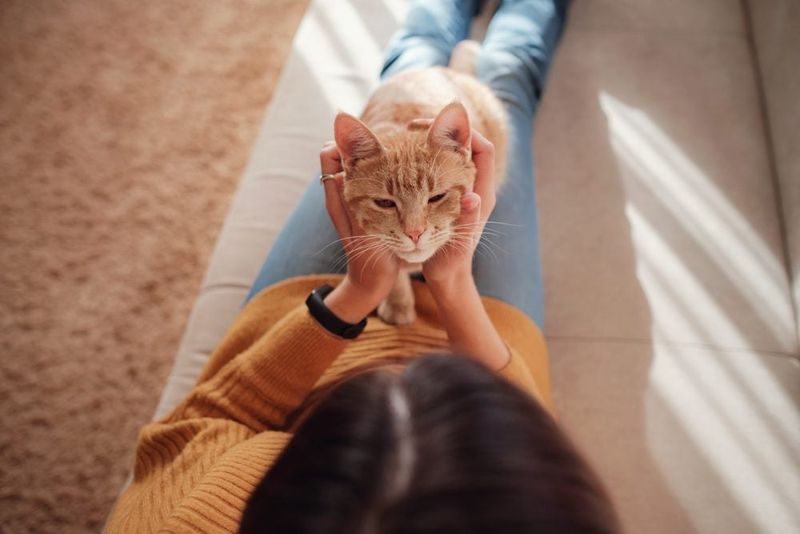
Had a tough day? Emotionally astute cats often shift their behavior to match your emotional needs. This adaptive response demonstrates remarkable emotional attunement.
Animal behaviorists observe that highly emotionally intelligent cats become calmer and more affectionate when their humans are stressed. They might reduce playful antics and increase gentle companionship. Your cat essentially reads your emotional state and adjusts their energy level and interaction style accordingly. This emotional synchronization shows they’re not just aware of your feelings but actively responding to support your emotional regulation.






